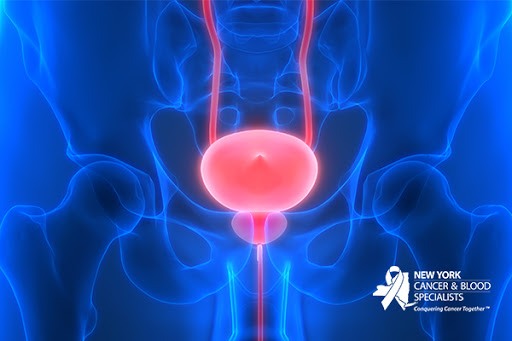Bladder Cancer Awareness Month
Bladder cancer, a common type of cancer, often begins in the bladder cells, the hollow muscular organ located in your lower abdomen that stores urine. In most cases, cancer starts in the cells that line the inside of your bladder. These are known as urothelial cells.
Though most occurrences are found in the early stage when it's most treatable, there is still a chance of recurrence even after successful treatment.
However, knowing the symptoms, causes, and staying on top of follow-up treatment is vital.
Here's what you should know:
Causes and Symptoms of Bladder Cancer
Bladder cancer begins when the DNA in the bladder mutates or changes. These mutated cells may get overlooked by being attacked by the immune system and grow to form a tumor in the bladder.
It's not uncommon for those with bladder cancer to see no symptoms at all. However, when symptoms are present, you might notice the following:
The most common sign being blood in urine and often diagnosed with a specific test.
Risks Factors of Bladder Cancer
When it comes to your risk factors, men are at a higher risk than women of developing bladder cancer. For women, it might be 1 in 86, while for men, it's a 1 in 25 chance. Bladder cancer is also more likely to occur later in life, with the average age of diagnosis being 73.
A family history, certain disease factors, and genes could increase your risks too.
To lower your risks, drinking lots of fluids, limiting your exposure to chemicals, and avoiding cigarette smoking. A diet high in colorful fruits may help reduce your cancer risks, too.
Diagnosing Bladder Cancer
Diagnosing bladder cancer can include cystoscopy to examine the inside of the bladder, a biopsy of tissue, a urine sample, or image testing. From there, you might require additional testing to ensure cancer has not spread. The results will then determine if your cancer is low-grade or high-grade.
Treatment for Bladder Cancer
Once diagnosed and all testing is complete, your cancer care will be thoroughly discussed and mapped out to ensure you get the most personalized and state-of-the-art treatment we can provide. After successful treatment, following up testing will need to continue to ensure any recurring growth is spotted and treated early on.


